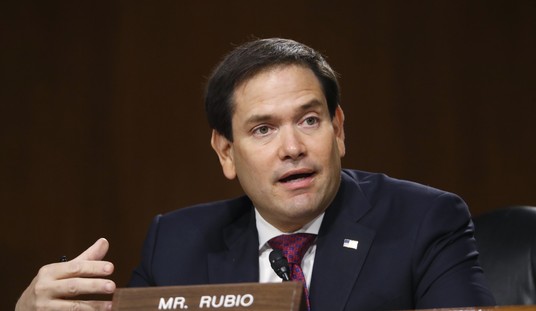Two news items underline the fundamental problem of the administration. The first is a story from Bloomberg reporting that the Department of Commerce now believes that the first 12 months of the recession was twice as bad as previously estimated. The article says the real steepness from the period beginning in December, 2007 sheds light on why the Fed cut interest rates so drastically, and why unemployment had declined so precipitously. It also says that the recession of 2001 was not nearly so bad as was believed. In other words, GWB was handed a better economy than thought and Barack Obama drove away from the lot thinking a paint job would set things right when all along the chassis was cracked in half a dozen places. A lunch at the White House is related, in a narrative sense, to the new story of how bad things were — or are. The Politico says that CEOs invited to lunch at the White House were billed for the meals. It’s an act without much potential to reduce to Federal deficit, but one with considerable power to communicate. We’ve gone from expectantly waiting for “green shoots” to “brother, can you spare a dime?”
Taken together the two items collectively characterize the difficulty: what, beside more symbolism, can the Obama White House do to fix the troubled economy? Maybe there’s nothing more he can do. But if he’s out of “dos” maybe he can start on “don’ts”. If government is at least partly the cause of the current problems, then high on the list of solutions would be negative actions like “don’t the feed the bubble” which started the problem in the first place; and don’t manufacture a new bubble to take the place of the old one.
But the institutional atmosphere of politics has long been one of apparent problem solving. Government is continuously ‘solving things’. Amie Parnes describes a day in the life of the man who does everything from change the printer cartridges at the White House to making sure that small Presidential favors are speedily fulfilled. “Brian Mosteller carefully pens a to-do list” that “mixes the monumental and the mundane. … In a town focused on keeping the trains running on time, Mosteller, 33, is one of the supreme conductors.” It makes depressing reading. Mosteller, who seems like an earnest and hard working man, alternately sprints and slows to a stately walk, depending on the ambiance, to keep the round of activity going. It’s a life of endless bustle, perpetual fixing, continuous motion.
The trains have to stay on time, but where are they bound? And more to the point, how much has it cost? At every level of government except the Federal, the Big Ride is slowing down. Reason Magazine writes that the salad days are over: 39 state governments are facing budget cuts. “The crisis in state budgets is not an accident, and it wasn’t unforeseeable. For years, most states have spent like there’s no tomorrow, and now tomorrow is here. They bring to mind the lament of Mickey Mantle, who said, ‘If I knew I was going to live this long, I’d have taken better care of myself.'” Like the economy as a whole, government rode a bubble they thought would never end.
The days of wine and roses have been affordable due to a cascade of tax revenue. In state after state, the government’s take has ballooned. Overall, the average person’s state tax burden has risen by 42 percent since 1999—nearly 50 percent beyond what the state would have needed just to keep spending constant, with allowances for inflation. …
California illustrates the problem. Adam Summers of the libertarian Reason Foundation in Los Angeles has calculated that if it “had simply limited its spending increases to the 4.38 percent average annual increase in the state’s consumer price index and population growth each years since fiscal year 1990-91, the state would be sitting on a $15 billion budget surplus right now.”
And now it’s going to take more than charging CEOs for lunches at the White House to put things right. And as for the taxpayer, maybe he’ll finally get to where he can get off. The Ride, as is now forgotten, was once a means to an end, not an end in itself. There was a popular tune in 1950s Boston about a man named Charlie who disappeared forever in the labyrinthine toils of the subway system. The “Charlie” of the song is known in Boston as the Man Who Never Returned. With any luck, the taxpayer will fare better.
Let me tell you the story
Of a man named Charlie
On a tragic and fateful day
He put ten cents in his pocket,
Kissed his wife and family
Went to ride on the MTACharlie handed in his dime
At the Kendall Square Station
And he changed for Jamaica Plain
When he got there the conductor told him,
“One more nickel.”
Charlie could not get off that train.Charlie’s wife goes down
To the Scollay Square station
Every day at quarter past two
And through the open window
She hands Charlie a sandwich
As the train comes rumblin’ through.As his train rolled on
underneath Greater Boston
Charlie looked around and sighed:
“Well, I’m sore and disgusted
And I’m absolutely busted;
I guess this is my last long ride.”Now you citizens of Boston,
Don’t you think it’s a scandal
That the people have to pay and pay
Vote for Walter A. O’Brien
Fight the fare increase!
And fight the fare increase
Get poor Charlie off the MTA.Chorus:
Or else he’ll never return,
No he’ll never return
And his fate will be unlearned
He may ride forever
‘neath the streets of Boston
He’s the man who never returned.










Join the conversation as a VIP Member